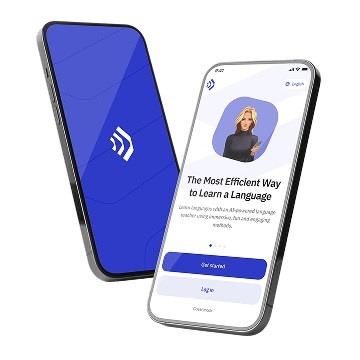Before diving into the language itself, it is crucial to understand the cultural context of British customer service. The British are known for their politeness and formality, which is reflected in their customer service interactions. Phrases like “please,” “thank you,” and “sorry” are frequently used and are an integral part of maintaining a polite conversation. Understanding this cultural nuance will help you sound more natural and respectful when speaking English.
Common Phrases and Vocabulary
British customer service language often includes specific phrases and vocabulary that are useful to learn. Here are some common terms and their meanings:
1. **Enquiry**: This is a formal way of saying “question” or “query.” For example, “I have an enquiry about my bill.”
2. **Assistance**: This means help or support. For example, “I need some assistance with my account.”
3. **Availability**: This refers to whether something is available or in stock. For example, “Can you check the availability of this item?”
4. **Complaints**: These are expressions of dissatisfaction. For example, “I would like to make a complaint about the service.”
Polite Requests and Responses
In British customer service, making polite requests is essential. Here are some examples:
1. **Could you**: This is a polite way to ask someone to do something. For example, “Could you please check my order status?”
2. **Would you mind**: This is another polite way to ask for something. For example, “Would you mind helping me with this issue?”
3. **I would appreciate it if**: This is a formal way to make a request. For example, “I would appreciate it if you could resolve this matter quickly.”
When responding to requests or questions, politeness is equally important:
1. **Certainly**: This is a polite way to say “yes.” For example, “Certainly, I can help you with that.”
2. **I’m afraid**: This is a polite way to say “no” or to deliver bad news. For example, “I’m afraid that item is out of stock.”
3. **Thank you for your patience**: This is a courteous way to acknowledge someone’s wait. For example, “Thank you for your patience while I check your account.”
Role-Playing Scenarios
Practicing through role-playing can significantly improve your conversational skills. Here are a few scenarios you can practice:
Scenario 1: Calling a Customer Service Hotline
Imagine you need to call a customer service hotline to enquire about a product you purchased.
You: “Good morning, I have an enquiry about a product I purchased last week.”
Customer Service: “Good morning, how can I assist you today?”
You: “I bought a laptop, but it’s not working properly. Could you help me with this issue?”
Customer Service: “Certainly. Could you please provide me with your order number?”
You: “Yes, it’s 12345.”
Customer Service: “Thank you. I will check the details for you. Please hold on for a moment.”
You: “Thank you for your assistance.”
Scenario 2: Inquiring at a Store
Imagine you are at a store and need to find out if a particular item is available.
You: “Excuse me, could you please tell me if you have this item in stock?”
Store Assistant: “Certainly. Which item are you looking for?”
You: “I’m looking for the latest model of the XYZ smartphone.”
Store Assistant: “I’m afraid we are currently out of stock. Would you like me to check if it’s available at another store?”
You: “Yes, I would appreciate that. Thank you.”
Store Assistant: “Please give me a moment. I will check for you.”
Dealing with Complaints
Complaints are an inevitable part of customer service. Knowing how to handle them politely and effectively is crucial.
Making a Complaint
When making a complaint, it is essential to remain calm and polite.
You: “Good afternoon, I would like to make a complaint about the service I received.”
Customer Service: “I’m sorry to hear that. Could you please provide me with more details?”
You: “Yes, I ordered a product online, but it arrived damaged. I would like to request a replacement.”
Customer Service: “I apologize for the inconvenience. Could you please provide me with your order number so I can look into this for you?”
You: “Sure, it’s 67890.”
Customer Service: “Thank you. I will arrange for a replacement to be sent to you as soon as possible.”
Responding to a Complaint
If you are on the receiving end of a complaint, here is how you can respond politely.
Customer: “I would like to make a complaint about the service I received.”
You: “I’m very sorry to hear that. Could you please tell me what happened?”
Customer: “I received the wrong item in my order.”
You: “I apologize for the mistake. I will arrange for the correct item to be sent to you immediately. Could you please provide me with your order number?”
Customer: “Yes, it’s 54321.”
You: “Thank you. I will ensure this is resolved quickly.”
Tips for Effective Communication
Effective communication is key to mastering conversational English in any context, including customer service. Here are some tips to help you communicate more effectively:
Listen Carefully
Listening is just as important as speaking. Pay close attention to what the other person is saying so you can respond appropriately. If you don’t understand something, don’t hesitate to ask for clarification.
Practice Active Listening
Active listening involves showing that you are engaged in the conversation. Use phrases like “I see,” “I understand,” and “That makes sense” to show that you are paying attention.
Use Clear and Simple Language
Avoid using overly complex words or phrases. Speak clearly and concisely to ensure that your message is understood.
Be Polite and Respectful
Always use polite language and show respect to the person you are speaking with. This will help create a positive and productive conversation.
Ask Questions
If you are unsure about something, don’t be afraid to ask questions. This will help you gain a better understanding of the situation and ensure that you are on the same page as the other person.
Building Confidence
Confidence is crucial when speaking a new language. Here are some ways to build your confidence in conversational English:
Practice Regularly
The more you practice, the more confident you will become. Try to engage in conversations in English as often as possible.
Start Small
Begin with simple conversations and gradually move on to more complex ones. This will help you build your confidence step by step.
Learn from Mistakes
Don’t be afraid to make mistakes. They are a natural part of the learning process. Learn from them and use them as an opportunity to improve.
Seek Feedback
Ask for feedback from native speakers or language teachers. They can provide valuable insights and help you improve your conversational skills.
Additional Resources
To further enhance your learning, here are some additional resources you can use:
Online Courses
There are many online courses available that focus on conversational English and customer service. These courses often include interactive lessons and practice exercises.
Language Exchange Programs
Language exchange programs allow you to practice English with native speakers while helping them learn your native language. This is a great way to improve your conversational skills and make new friends.
Customer Service Training Materials
Many companies provide customer service training materials that include useful phrases and scenarios. These can be a valuable resource for learning the language of customer service.
Practice Apps
There are numerous language learning apps available that offer practice exercises and interactive lessons. Some popular options include Duolingo, Babbel, and Rosetta Stone.
Conclusion
Learning conversational English through the context of British customer service can be a highly effective way to improve your language skills. By understanding the cultural nuances, practicing common phrases and vocabulary, and engaging in role-playing scenarios, you can develop the confidence and ability to communicate effectively in everyday situations. Remember to practice regularly, seek feedback, and use additional resources to enhance your learning experience. With dedication and effort, you will be well on your way to mastering conversational English.





